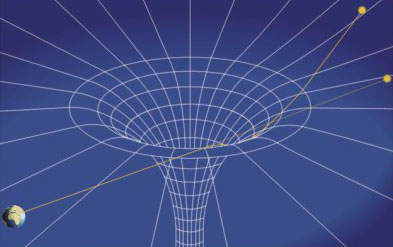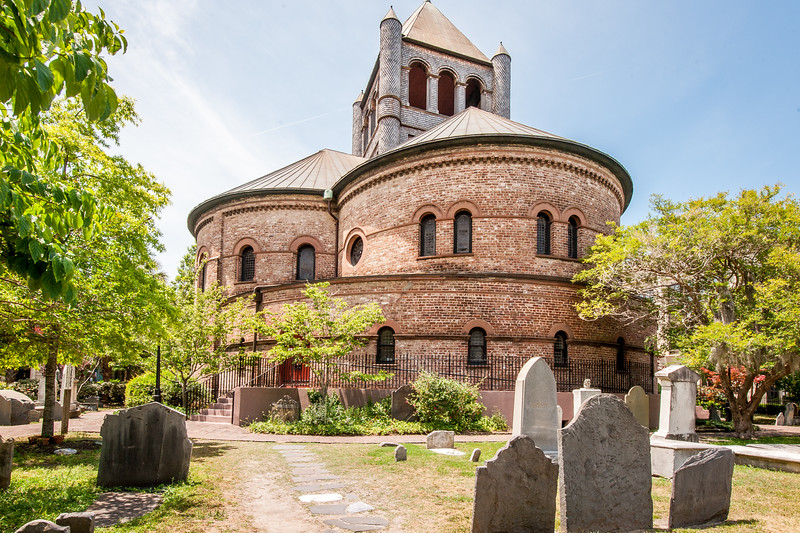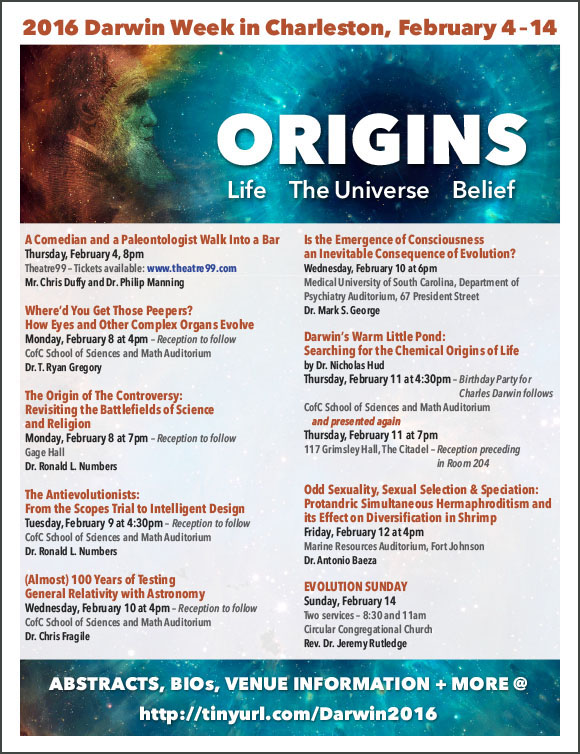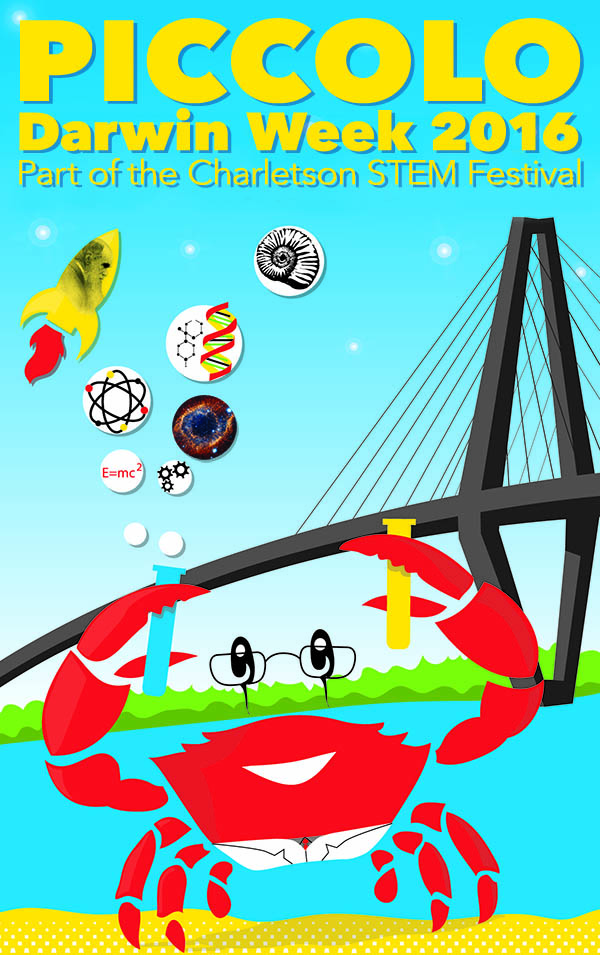
 |
Darwin Week presents a hilarious and engaging hour of conversation and audience games with Mr. Chris Duffy and Dr. Phillip Manning. You'll learn, you'll laugh, you'll even have the opportunity to win some prizes! We'll explore the history of evolution, what dinosaurs and birds have in common, and Jurassic CSI.
:: BUY YOUR TICKETS NOW ::
Chris Duffy is the host of public radio's You're the Expert, where three comedians try to guess what a leading scientist studies all day. Chris is a nationally touring comedian whose shows have been featured in The New York Times, The Boston Globe, The Washington Post, and PBS NOVA. Chris is both a former fifth grade teacher and a former fifth grade student. Dr. Phil Manning is a Professor of Paleontology in the Department of Geology and Environmental Geosciences at the College of Charleston, Professor of Natural History at the University of Manchester (UK), and Fellow of the Explorer’s Club. He has written and presented many National Geographic documentaries, including Jurassic CSI, Dino Autopsy, and Dino Death Match.
A century and a half ago, the origin of complex organs such as the human eye seemed explicable only in terms of supernatural design. Darwin provided the basic framework for a scientific answer to the question in The Origin of Species, but he nonetheless admitted that thinking about the eye gave him a "cold shudder." Dr. Gregory will review the wealth of new information that has arisen since Darwin first addressed the problem -- including insights from genetics, molecular biology, comparative anatomy, developmental biology, and evolutionary theory. Sponsored by the CofC Department of Biology.
Reception to follow.
Sponsored by the CofC Program in Environmental Studies.
Dr. T. Ryan Gregory is an Associate Professor in the Department of Integrative Biology at the University of Guelph in Canada where he specializes in genome evolution. His B.Sc. is from McMaster University and his Ph.D. is from Guelph. He is Editor-in-Chief of the journal Evolution: Education and Outreach.
In the early nineteenth century, the harmony between science and religion was so pervasive that one contemporary dubbed it “The Age of Christian Science.” The second third of the century, however, witnessed challenges to traditional Christian beliefs from astronomy, geology, anthropology, phrenology, and, most threatening of all, from biology. During these years religious leaders commonly portrayed themselves as the victims of scientific aggression. During the last third of the century such complaints were largely drowned out by the shouts of men such as Huxley, Tyndall, Draper, and White, who charged religion with being the historical aggressor against science. In the 1920s, fundamentalist Christians in the United States finally struck back, launching a crusade to eradicate evolution from the churches and schools throughout the land. Sponsored by the Presbyterian Association on Science, Technology, and the Christian Faith.
Reception to follow.
Sponsored by the Secular Humanists of the Lowcountry.
Dr. Ronald L. Numbers is Hilldale Professor of History emeritus at the University of Wisconsin. He has authored or edited 27 books, including The Creationists (Harvard 2006) and Galileo Goes to Jail and Other Myths about Science and Religion (Harvard 2009). He is currently editing the eight-volume Cambridge History of Science.
Even in the 1920s, the Christian fundamentalists associated with William Jennings Bryan’s crusade to eradicate Darwinism from the schools and churches of America readily accepted the paleontological evidence for the antiquity of life on earth. It was not until the coming of “scientific creationism” in the 1960s and 1970s that large numbers of antievolutionists began insisting on the recent appearance of life and assigning most of the geological column to the year of Noah’s flood. During more recent decades a new, nonbiblical, form of opposition to evolution has arisen under the banner of “intelligent design,” which seeks to “reclaim science in the name of God” and to change the very rules governing the practice of science.
Reception to follow.
Sponsored by the CofC Departments of History and Religious Studies.
See above for a brief biography of the speaker.
 Last year we celebrated the 100th anniversary of the publication of Albert Einstein’s theory of General Relativity. As one of the pillars of modern physics, this theory has had profound impacts on the development of science and technology over its first century, most grandly in the realms of astronomy and cosmology. Dr. Fragile will describe the quest that astronomers have been on to confirm the myriad bizarre predictions of General Relativity, some even predating the formal publication of Einstein’s theory. To date, the theory has withstood all of these tests, yet the quest goes on.
Last year we celebrated the 100th anniversary of the publication of Albert Einstein’s theory of General Relativity. As one of the pillars of modern physics, this theory has had profound impacts on the development of science and technology over its first century, most grandly in the realms of astronomy and cosmology. Dr. Fragile will describe the quest that astronomers have been on to confirm the myriad bizarre predictions of General Relativity, some even predating the formal publication of Einstein’s theory. To date, the theory has withstood all of these tests, yet the quest goes on.
Reception to follow.
Sponsored by the CofC Department of Physics and Astronomy.
Dr. Chris Fragile received a B.S. degree in Physics from Duke University and his M.S. and Ph.D. from the University of Notre Dame. He spent 4 years as a Postdoctoral Researcher in California, before accepting a faculty position in the Department of Physics & Astronomy at the College of Charleston. He has over 50 refereed publications and has been awarded numerous grants for his work, primarily in computational astrophysics.
The mind-brain problem and the question of the neural basis of consciousness are some of modern science’s hardest questions. To say that an organism has conscious experience implies self-awareness. Dr. George will argue that even a crude conceptualization of an ‘I’ or ‘me’ would confer large evolutionary advantage for memory and planning. Darwinian principles, applied to the brain, suggest that life on earth has likely and perhaps inevitably evolved to create creatures like us, humans, who are conscious.
Mark S. George, M.D. is a Distinguished Professor of Psychiatry, Radiology and Neuroscience and holds the Layton McCurdy Endowed Chair at MUSC. He directs the Brain Stimulation Laboratory. In 2009 US News and World Report named him one of 14 ‘medical pioneers who are not holding back’. He has published over 400 scientific articles or book chapters, and has written or edited 6 books. He also keeps bees, and wonders if the hive has consciousness, and how we would ever know.
Charles Darwin once speculated that biological molecules might spontaneously form in a “warm little pond,” but then stated that it was “mere rubbish” to think about the origin of life during his time. 150 year later, tremendous advances in biology and chemistry have now made it possible to explore, using model reactions and genomic data, the chemical origins and early evolution of life. This combination of so-called bottom up (i.e., chemical) and top down (i.e., biological) approaches to uncovering the origins of life are now creating a draft of the “missing first chapter” of Darwin’s book On the Origins of Species.
Birthday Party for Charles Darwin to follow.
Sponsored by the Charleston Chapter of Sigma Xi.
Nicholas Hud is Professor of Chemistry at Georgia Tech and Director of the NSF-NASA Center for Chemical Evolution. He received his B.S. from Loyola Marymount University and his Ph.D. from UC Davis, with postdoctoral research at UCLA. He has studied the physical properties of DNA and RNA for over twenty-five years. His current research is focused on questions related to the origins and early evolution of biopolymers.
See above for the abstract and a brief biography of the speaker.
Reception preceding in Room 204.
Sponsored by the Charleston Chapter of Sigma Xi.
Organisms that display protandric simultaneous hermaphroditism mature first as males, and subsequently add female function. Dr. Baeza will explore the evolutionary consequences of this unusual sexual system using marine “peppermint” and “cleaner” shrimps. His evidence suggesting male-male competition for sexual partners in these shrimp is among the first adduced for any hermaphroditic population.
Refreshments preceding, reception to follow at the MUSC White House.
Programmed in conjunction with the Fort Johnson Marine Science Seminar Series.
Co-sponsored by the CofC Masters Program in Environmental Studies.
Dr. Antonio Baeza is an Assistant Professor in the Department of Biological Sciences at Clemson University, and Research Associate at the Smithsonian Marine Station, Fort Pierce.

A talk and discussion — a series of games, trivia, and discussion-based questions focusing on theories regarding the origin of the universe, our solar system and life on Earth.
At a brewery!
 Thoughtful religion and science have never been at odds. Each embarks on a search for truth and meaning through careful observation and method. Ritual, discipline, and poetry infuse the naturalist’s lab and the pastor’s study; reverence, wonder, and awe their common language. Don’t believe those who say otherwise.
Thoughtful religion and science have never been at odds. Each embarks on a search for truth and meaning through careful observation and method. Ritual, discipline, and poetry infuse the naturalist’s lab and the pastor’s study; reverence, wonder, and awe their common language. Don’t believe those who say otherwise.
Join Rev. Rutledge as we consider how complimentary religion and science really are and how we might make the case more broadly and beautifully
The Rev. Dr. Jeremy Rutledge is senior minister at Circular Congregational Church (UCC) downtown. He studied at Baylor University, the Baptist Theological Seminary at Richmond, and Meadville Lombard Theological School in Chicago, where his doctoral work focused on religious naturalism. Rev. Rutledge is a longtime member of the Institute on Religion in an Age of Science.
DOWNLOAD the POSTER

:: Hi Res (4MB) :: Low Res (500K)
Help get the word out by posting the 2016 Darwin Week poster with all speakers, talk titles, times and locations.
Don't Miss Piccolo Darwin Week!

Holy Evolution Beer!?
Holy City Brewing co-founder Chris Brown is a College of Charleston alum with a degree in Geology. The brewery's latest creation in honor of the CofC Geology Department, and the first in celebration of Darwin Week, is Holy Evolution! Thanks for the Darwin Week support!
2016 Event Venues
The School of Science and Math Auditorium, College of Charleston
Located at the intersection of Coming and Calhoun Streets, across from the College Library. The SSMB (School of Science and Math) Auditorium is Room 129.
Parking available on the street, or at the St. Philip Street Garage, between George & Liberty.
Grimsley Hall, The Citadel
The Citadel’s Grimsley Hall is located at the north end of Summerall Field, on Jenkins Avenue.
Parking available around the field, or Jones Ave. immediately to the northwest.
Department of Psychiatry Auditorium, MUSC
The Institute of Psychiatry is located at the corner of President and Doughty streets.
Parking available at the Jonathan Lucas Street Garage.
The Marine Resources Research Institute Auditorium is located in the SCDNR building, 217 Fort Johnson Road. A parking lot is available for the building.
Maps of the CofC Campus, The Citadel and MUSC are available online.
Theatre 99
Located at the back of 280 Meeting Street, above the Bicycle Shoppe.
Parking available on the street, or at the St. Philip Street Garage.
Gage Hall
Gage Hall is located at 4 Archdale St, just south of the Unitarian Church.
Parking available on the street, or at Queen Street garage (93 Queen)
Circular Congregational Church
Circular Congregational Church is located at 150 Meeting Street. Parking available in the Cumberland Street Garage, between Meeting & Church.
PAST YEARS’
Darwin Week In Charleston, Since 2001
DarwinDay.org
The International Darwn Day Foundation, celebrating Science and Humanity.
Evolution Weekend
An opening for serious discussion on the relationship between religion and science, from The Clergy Letter Project.
.
The Charleston Chapter of Sigma Xi
South Carolinians for Science Education
The Citadel School of Science and Mathematics
Circular Congregational Church, Charleston
Secular Humanists of the Lowcountry
Presbyterian Association on Science, Technology, and the Christian Faith
CofC Biology Club
CofC Biology Department
CofC Environmental Studies Program
CofC Masters in Environmental Studies
CofC History Department
CofC Physics Department
CofC Religious Studies Department
CofC School of Science & Math
Howard Hughes Medical Institute Grants for Science Education
Lowcountry Hall of Science and Math
This page brought to you by:
Dr. Rob Dillon
Charleston Chapter of Sigma Xi
site by Stephen Bleezarde